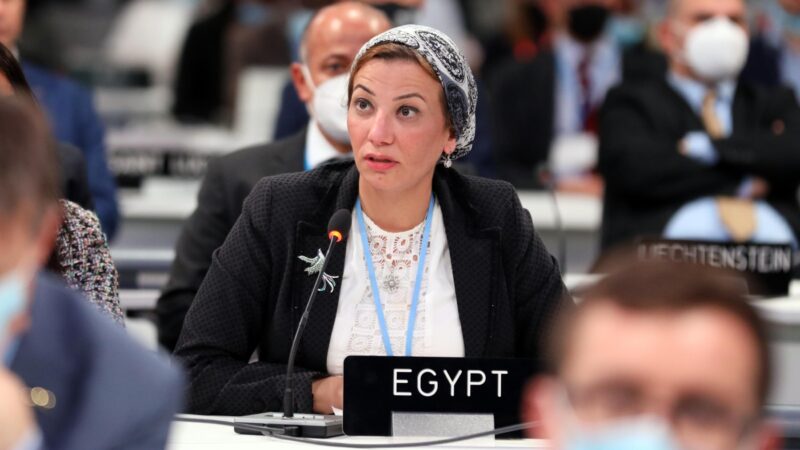Egypt has said it will put a focus on resilience to climate impacts when it hosts the annual UN climate summit in Sharm el-Sheikh next year.
Climate justice activists hope that a Cop in Africa will raise awareness about the severe climate impacts facing the continent and deliver more support for adaptation and loss and damage.
Under the UN system of regional rotation, it is the turn of an African nation to host the climate summit. On Thursday, Egypt was officially approved to hold the presidency of Cop27, followed by the United Arab Emirates in 2023.
“The hard work put in by the UK presidency deserves to be rewarded and will be rewarded,” Egypt’s environment minister Yasmine Fouad told ministers. “Our commitment as the next president is to carry the torch and build on the success of the current presidency…
“Egypt has and continues to be a strong believer and supporter of multilateralism. In today’s world nothing becomes more challenging, active and dynamic in multilateralism than climate change.”
Draft Glasgow pact calls on countries to submit new climate plans by 2022
The agenda will include work to develop a global goal on adaptation to the impacts of climate change and a post-2025 climate finance target from 2025.
“We are inheriting a heavy [legacy] from Glasgow,” Egypt’s lead climate negotiator Mohamed Nasr told Climate Home News. “If you look at the decisions coming out here, a lot of follow up is needed in Egypt.”
Nasr added: “It is a Cop in Africa so resilience and adaptation will be at the core of it.”
Egypt is a member of the Adaptation Action Coalition launched by UK prime minister Boris Johnson this year.
“It’s a big job – the UK has raised the bar too high. This was much better than any other Cop I’ve attended. There is collective understanding and commitment to move forward,” Nasr said.
African activists and observers told Climate Home News they were hopeful an African Cop would deliver a more positive outcome for them than Cop26.
“The fact that Cop is going to be in Africa is one of the opportunities for the most affected people to raise their voices,” Patience Nabukalu, a 23-year-old climate justice activist from Uganda, told Climate Home News.
“When we were coming to Cop26, we hoped for a lot because between 2018 and 2021, we have seen wildfires, floods and seen people dying. When we came to Cop26, they had no solutions,” she said.
“Cop26 was meant to keep 1.5 alive, yet the current draft text would deliver a 2.4C world. That is a death sentence for communities like mine,” said Kenyan youth activist Elizabeth Wathuti.
“I don’t know what Cop27 in Egypt will bring, but it cannot succeed unless it is people-centred and delivers an outcome that protects the lives and livelihoods of the world’s most vulnerable people.”
‘Nature-based solutions’ prove divisive at Glasgow climate talks
“An African Cop gives us a good opportunity to address some of the issues that have not been given prominence here at Cop26, issues of importance for people in Africa and voices from the south like finance for adaptation and loss and damage,” Obed Koringo, Care International’s civil society coordinator, told Climate Home News.
“Cop27 is do or die for us, the ultimate Cop where key elements that haven’t been completed here in Glasgow will have to be dealt with. It’s a great opportunity for us in Africa to mobilise and push for a Cop that reflects the needs and rights of those from the region,” he said.
In 2023, it is the turn of UAE to host.
“We have an even better relationship with the UAE [than the UK]: same region, same climate challenges,” Nasr said. “It will be the perfect time to show the world that this region is also part of the global action towards climate change,” Nasr added, in a nod to the reputation of Gulf oil and gas producers as blockers.
“It will be a good chance to show what this part of the world is really doing,” he said.
